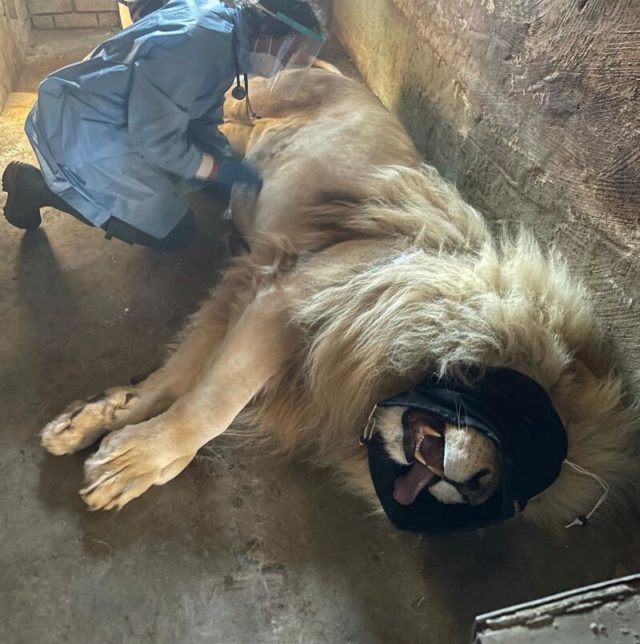A University of Pretoria-led study has revealed that the Covid-19 Delta variant can be transmitted from humans to animals.
A UNIVERSITY of Pretoria (UP)-led study has revealed that the Covid-19 Delta variant can be transmitted from humans to animals.
A team of scientists from UP on Tuesday announced they had published the only study from Africa that entailed genomic One Health investigations, an approach that recognises that the health of people is closely connected to the health of animals and a shared environment, revealing the transmission from human to animals.
The team found that reverse zoonotic transmission of Covid-19 from asymptomatic animal handlers at a private zoo in Gauteng posed a risk to big cats kept in captivity.
The animals tested PCR positive for up to seven weeks after becoming sick.
“This extended period of potential virus-shedding poses a risk of infection to animals in close proximity and possibly humans. The animals were therefore placed in quarantine until they tested negative,” the scientists said.
The study was led by Professor Marietjie Venter, Head of the Zoonotic, Arbo- and Respiratory Virus Programme at UP’s Department of Medical Virology; and Professor Katja Koeppel, Associate Professor of Wildlife Health at the University’s Faculty of Veterinary Science.
“In 2020, the team tested the faeces of two pumas that had previously shown signs of anorexia, diarrhoea and nasal discharge,” Koeppel explained.
“They tested positive for Covid-19 and exhibited mild symptoms. They were medicated and made a full recovery after 23 days. Unfortunately, we could not carry out an investigation into the source or the specific variant involved in the outbreak. The samples were diagnosed by real-time PCR at the time of the outbreak, but when we tried to sequence the sample a year later, there was insufficient RNA left for genome sequencing.”
During South Africa’s third wave of the Covid-19 pandemic, the team conducted a study on three sick lions at the same zoo.
“The lions had breathing problems as well as runny noses and a dry cough for up to 15 days,” Koeppel said. “A persistent cough was seen between five and 15 days, with two lions experiencing difficulty breathing. One lioness developed pneumonia that did not respond to antibiotics.”
Staff and lions were monitored in the weeks that followed for the presence of Sars-CoV-2, and within 15 to 25 days all three lions made a full recovery.
“A One Health investigation into the source of infection was conducted on 12 staff members who had been in direct or indirect contact with the lions,” Venter said.
Swab and serum testing were carried out. One staff member who had direct contact with the lions and another who had indirect contact tested PCR positive for Sars-CoV-2 two weeks after the start of the lion disease course. All three lions were PCR positive.
“None of the staff interviewed reported any recent symptoms of Covid-19. However, the zoo keeper developed mild symptoms the following day and was confirmed positive.”
“This data suggests that Sars-CoV-2 was circulating among staff during the time that the lions got sick, and suggests that those with direct contact with the animals were likely responsible for the reverse zoonotic transmission.”
Genome sequencing was conducted on the humans and three lions, and tests revealed each of the infections was a Delta variant. The two pumas and three lions presented with respiratory illness that was similar to Covid-19 in humans. The animals did not respond to antibiotic treatment but recovered after treatment with anti-inflammatory drugs and supportive care.
The scientists stressed that precautions such as vaccinating staff, wearing masks when entering cages and preparing food, infection control through the use of disinfectants, and distance barriers for members of the public should be put in place at zoos.
“This is to protect potentially endangered species from getting infected and dying,” Venter and Koeppel said.
Members of the public are also urged to be aware of the possibility of infecting their pet cats and dogs if they have Covid-19.








